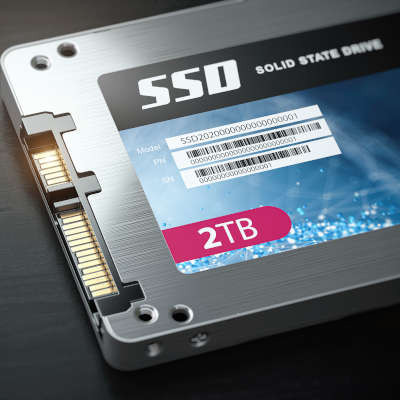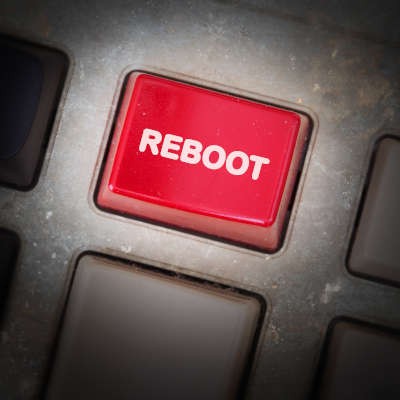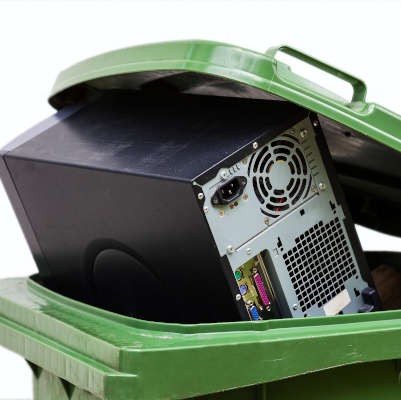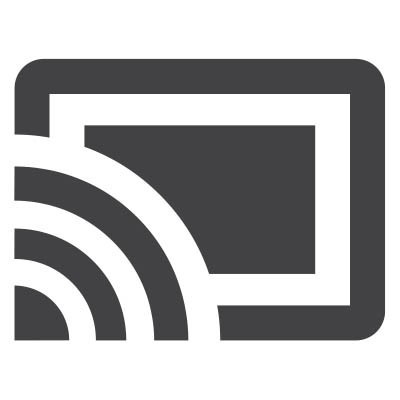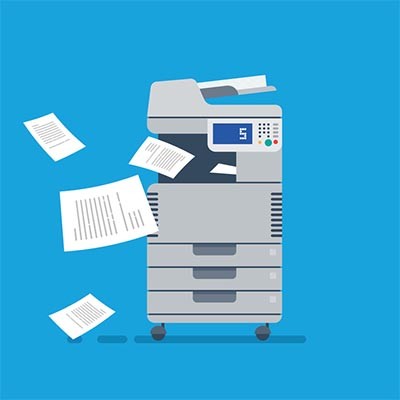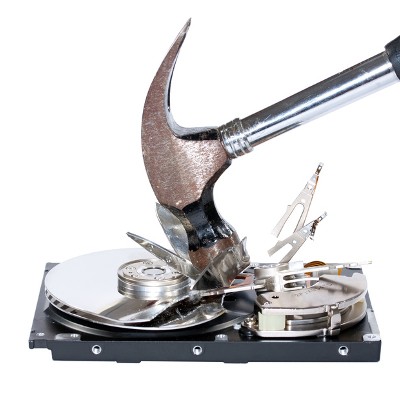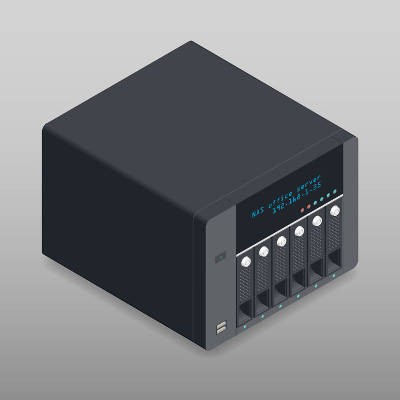Each business uses a certain amount of technology to get things done, but today, no technology is as important to businesses as the Internet. You’ve begun to see businesses of all sizes spending thousands of dollars a month on Software-as-a-Service platforms designed to get workers the tools they need without placing undue pressure on a company’s capital budget. Today, we will talk about another cloud-based platform that is growing rapidly: Infrastructure-as-a-Service.
BEI Blog
If you are buying a new desktop or laptop, one of the specifications you might care about is how much data it can store. After all, your family computer needs plenty of storage for your photos and documents, and if you have kids, they’ll want to install games and other applications on it that fill up a hard drive. These days, however, it’s less about how much space your hard drive has and more about how fast it can run. Let’s explain this, and then talk about something you should almost always look for when picking a hard drive for your PC.
In the not-all-that-distant past, connectivity required an actual, physical connection between two endpoints. As a result, a wired connection was the only option for businesses to access online materials and resources. This leaves businesses with a choice to make: is a wired connection better for my operations, or should I implement wireless connectivity?
When you have a problem with your computer and you reach out for help, the first thing you will probably be asked is, “have you turned it off and turned it back on?” This is not because the technician is lazy, it is because a lot of problems can be fixed by rebooting your computer. Do you need to shut down or simply restart your computer? It might surprise you that turning your computer off and restarting it actually accomplishes different things. Today, we’ll discuss the difference.
Google’s contribution to streaming, the Chromecast, is a nifty little device. While many might hear “streaming” and immediately think “consumer device,” the Chromecast can actually offer your business a few handy utilities as well. Here, we’ll go over four of them, as well as guide your through setting up (and if necessary, resetting) your Chromecast.
We all know someone that has to have the latest and greatest technology. They have all of the gaming platforms, they have to get the newest smartphones every year, and they are the only person you know that owns multiple smartwatches. Clearly, some gizmo or gadget would make a great gift, but there’s still the age-old concern: what do you get for someone who seems to have everything?
No technology lasts forever. Your business will need to replace server hardware or workstations eventually, no matter how well you take care of it. However, what do you do with the hard drive of any device that you have to replace? If you don’t take action to destroy your old hard drive (after moving any data off of it as needed), you could be in violation of various compliance guidelines issued by HIPAA.
Why is HIPAA Important?
The Health Insurance Portability and Accountability Act of 1996 accomplishes two major goals: protect the health insurance coverage of workers as they change their employment, and protect the privacy of health data. One of the best ways to protect data like this is to make sure that only a certain number of copies are available, and that none of them are sitting around and waiting for someone to steal them. Even if it’s just sitting around waiting to be recovered, the data is at risk.
The latter point is particularly important since medical professionals need to store each individual patient’s data on their systems. Doctors aren’t immune to the dangers of hardware failure, and if they carelessly chuck their old hard drives following a catastrophic failure of some sort, there could be serious consequences. HIPAA provides specific requirements that healthcare providers need to adhere to in order to avoid liability for any issues related to data privacy.
How Do You Destroy Your Data?
One oddity with HIPAA compliance is that it doesn’t provide organizations or healthcare providers with any specific way to destroy data. However, it does provide some suggestions. You can magnetize your hard drive to delete data, or you could just smash it into a billion little pieces. One other common way of destroying data on a hard drive is by taking a power drill to it, but any physical destruction of the drive will work sufficiently. In order to completely destroy your data, however, you’ll want to take a few more steps. One of the best ways to make sure that your organization is prepared to face HIPAA compliance is by working with a managed service provider. Instead of destroying the drive yourself, you can leave it up to the professionals to use specialized equipment to destroy the drive, eliminating any risk on your end.
Does your organization need assistance with keeping compliance issues at the top of mind? BEI can help your organization ensure data compliance with your specific industry’s standards. To learn more, reach out to us at (844) BIZ-EDGE.
There’s plenty of terminology and acronyms used in the information technology field that may be unfamiliar at first. Take, for example, NAS. For today, we’ll explore this tech term to gain a deeper understanding of it, and how it may influence your business.
What is NAS?
NAS (pronounced “nahs”) is shorthand for network attached storage. In essence, it's a computing device on the network with the express task of storing files and data, much like a server does. Also, like a server, this data can be accessed by anyone on the network.
Generally, NAS is better suited for personal use as a media storage solution. Utilizing one can allow a family to stockpile their entire media library in a central location, enabling anyone in the household to access the files. In this way, the NAS device acts for personal use very much like a server does for a business.
However, some businesses have found utility in implementing a NAS device as a supplement to their servers. While it can’t stand up to the power that a server provides, there are some cases where network attached storage may be handy for a business to have. Some will use it as a backup and disaster recovery solution, although this is inadvisable.
Why NAS Isn’t Great for Business Continuity
Admittedly, a backup and disaster recovery, or BDR device, is essentially a NAS device with a very specific purpose. However, this also means that the BDR device is configured in a specific way that the NAS device is not.
Therefore, it makes more sense to reach out to BEI to inquire about setting up a true BDR solution to enable business continuity. We can also advise you on how your business may benefit more from using NAS for other means, or if there’s another solution that fits your needs better.
Give us a call at (844) BIZ-EDGE for more information.
It’s the end of the day, and you’re faced with a dilemma - shut down your workstation, or simply put it to sleep for the night? This is a topic that is debated quite often. We’ll compare the positive and negative aspects of both approaches to identify which is the better option.
Understanding Shutdown and Sleep Mode
In order to better grasp the effects that each approach has, it helps to ensure that there is a clear comprehension of what actually happens during each.
When a computer is instructed to shut down, it starts with any software that is in use before moving on to the actual hardware involved. The operating system sends out a notification to any open programs to stop reading and writing files in preparation for the hardware to power down. Once this is accomplished, signals are sent to the physical components to gradually cut power. This keeps the components safe from damage, which is also why you shouldn’t power down your computer by just holding the power button.
When a computer is placed in sleep mode, its RAM stores any files that are open and runs in a low-power state, while other pieces of software and hardware are temporarily disabled, able to be reactivated at any time.
Each of these methods have their benefits, as well as their drawbacks, that need to be considered.
The Benefits of a Full Shutdown
Shutting your computer down completely has a few benefits to take advantage of, the first of which being the fact that a shutdown gives your operating system a chance to flush out minor system issues. These issues would otherwise accumulate and cause greater problems down the line. Furthermore, many updates to Windows require the computer to be restarted before they can take effect.
There are also power concerns that are reduced by shutting down your computer completely. As one might imagine, a PC draws considerably less power when it is off than when it is on - even if it happens to be in sleep mode. There is also the slim (but still present) chance of a power surge damaging a computer that has been left on, a chance that a complete shutdown reduces.
The Benefits of Sleep Mode
First and foremost, the biggest advantage of leaving your computer in sleep mode is clearly the convenience it offers when the time comes to use it again. While the time spent waiting for a computer to turn on may not seem like much on a per-case basis, it adds up quickly and takes away from your overall productivity. As a result, it helps that (rather than waiting for the entire system to turn on) a single keystroke is all it takes to return to full function.
On the more technical side of things, leaving your computer in sleep mode gives it the opportunity to run some basic maintenance, maintenance that your computer needs to remain secure, and maintenance that can’t be completed when the computer’s off.
Why Not Both?
Taking all of this into consideration, it makes the most sense to utilize a combination of the two methods by putting your computer to sleep when you walk away from it throughout the day and powering it down overnight. This way, you get the convenience of quick access during active work hours, with safety precautions in place when it isn’t in use during off hours.
Another consideration would be if you have security updates and patches being performed during non-peak hours. If your strategy is to automate these tasks to avoid downtime altogether, having your staff keep their computers on may be advantageous.
Which do you typically do? Let us know in the comments, and make sure you subscribe to be notified whenever BEI posts a new blog!


